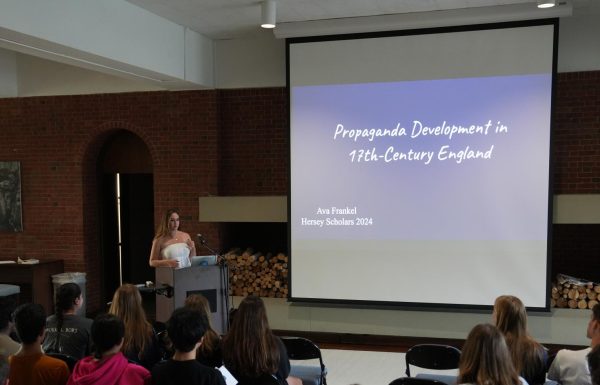Save Your Metal Straws — Vote!
Climate change is the most pressing, universal, and dangerous threat human society faces – I hope we can accept that as fact, and if not, then feel free to contradict me in the middle of the halls or use the email address below. We are increasingly aware of how we as humans contribute to the changing climate and how those changes will manifest. But how do we fix it?
There have been increasingly viral campaigns to “save the planet” ranging from banning plastic straws and buying t-shirts made from recycled plastic bottles to having meatless Mondays. Each of these movements preaches that you can personally save the environment all on your own!
It doesn’t work like that. Yes, you should absolutely reuse your grocery bags, shop local, and reduce your meat intake if you want to decrease your own carbon footprint. But is that really going to reduce global emissions to the levels we need? Almost certainly not.
For starters, most people are unable to afford a more “sustainable” way of living or are unable to identify how many pounds of carbon is related to each of their choices as consumers and citizens. Solar panels and electric cars are pretty expensive – they are getting cheaper, but with half of U.S. households earning $63,000, such luxuries are unimaginable. And for those who can afford Teslas and solar panels (even just a used Prius), we cannot cut out emissions from other aspects of our life if we cannot measure them.
The hoodies you buy, the roads you drive on, the food you eat – they all have emissions related to them. If enough people care about climate change, then the free market should adapt, and it is, but far too slowly, and in most cases, you do not know which brand of jeans is better for the environment. That and people need to care! The number of the United States’ best selling car, the Ford F-series – almost 900,000 sold! – is a pretty good indicator that many people don’t.
We could place stricter regulations on the energy, automotive, agricultural, and manufacturing industries, taking people’s unwillingness to change out of the equation. The only way to do that is through the ballot box, however, and I’m willing to bet farmers and auto workers won’t vote for those changes.
Economists almost universally argue that a price on carbon would be the most effective way to reduce emissions. This is because the environmental costs of certain products and services are not factored into their initial purchase cost – if they were, then it would make more sustainable alternatives the default (cheaper) choice. Such a surcharge could come in the form of companies paying a fee for each pound of carbon they emit, then passing the cost onto the consumer, but that’s where it starts becoming politically impossible. This policy is usually called a “carbon tax,” and I do not need to tell you people’s opinions on taxes. Plus, what about people who cannot afford more sustainable options but who are now paying even more for everyday products and services?
This is where sustainable subsidies come into the picture. Rather than increasing the cost of carbon-intensive goods and services, the government would pay companies and/or consumers part of the cost of more sustainable options. It could even mean encouraging people to buy used, repair older goods, or not buy anything in the first place. This would be expensive but worth it. And instead of hoping consumers care enough for the environment to pay a premium or forcing a decision on them, you give them an option that they would be stupid to refuse.
One way or another, however, we will need government action to combat climate change. Otherwise, the changes we need will happen too slowly or not at all.
So, if you really want to reduce your own carbon footprint, then vote for candidates who have policy plans addressing climate change. For the Presidency, that means any of the Democrats over President Trump. When it comes to local and state elections, lobby the candidates. Send them letters, emails, and make phone calls asking about what they intend to do – municipalities and state governments have a big role to play in combating climate change, too!
The way climate change stops being something only Democrats care about is if we all make it something we care about. And for those of you who cannot vote just yet, your input still matters! Your representatives will need your vote one day, and letters and emails and phone calls do matter at the state and local level.












